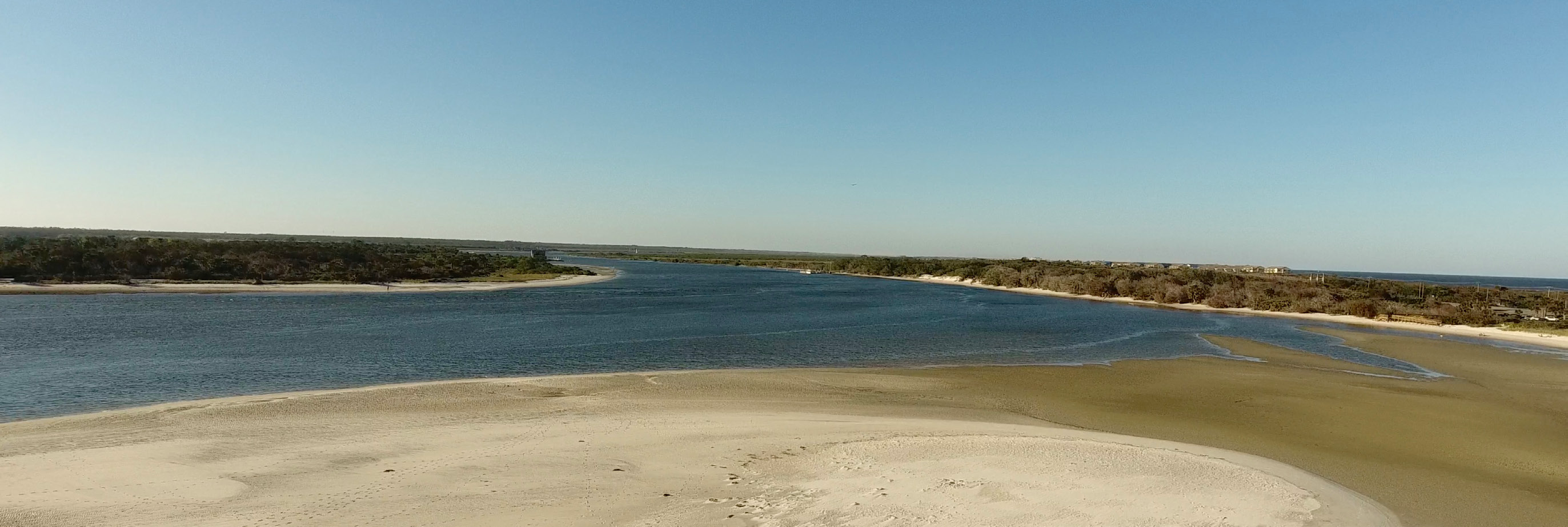 The Herbert Wertheim College of Engineering, in collaboration with several other colleges, is piloting a project that could serve as a model for collecting and analyzing data from real-time monitoring of coastlines globally using the living laboratory of Florida’s own 8,436 miles of coastline.
The Herbert Wertheim College of Engineering, in collaboration with several other colleges, is piloting a project that could serve as a model for collecting and analyzing data from real-time monitoring of coastlines globally using the living laboratory of Florida’s own 8,436 miles of coastline.
Using advanced sensors, including new technology in development at UF, the multidisciplinary team will develop a platform for widespread, real-time, multi-scale monitoring to map and predict environmental and human health threats along the coast. The following seven engineering experts are among 14 faculty involved in this project.
Christine Angelini, Ph.D.
Field Ecologist Investigating drivers of coastal ecosystem resilience
Why is iCoast so important?
Due to sea level rise, intensifying storms and changes in water quality, this coastal zone has become punctuated by threats to the people living there. For these reasons, innovating new technology to better monitor the coastal zone and developing forecasting systems are an important endeavor for people across Florida and around the world.
What impact do you hope to have in the long term?
Our vision is to enable proactive management and smart planning for a broad range of threats facing many coastal communities, including water pollution, pathogens, sea level rise and extreme weather events. We want to provide the engineering necessary for more sustainable occupancy and use of the coastal environment.
What keeps you motivated?
My children and my desire to utilize the excellent resources I have access to here at UF to improve our degraded environment keep me motivated. Our work through iCoast is vital to keeping the Florida coast livable in the coming decades and being a part of developing the knowledge needed to make that happen inspires me every day.
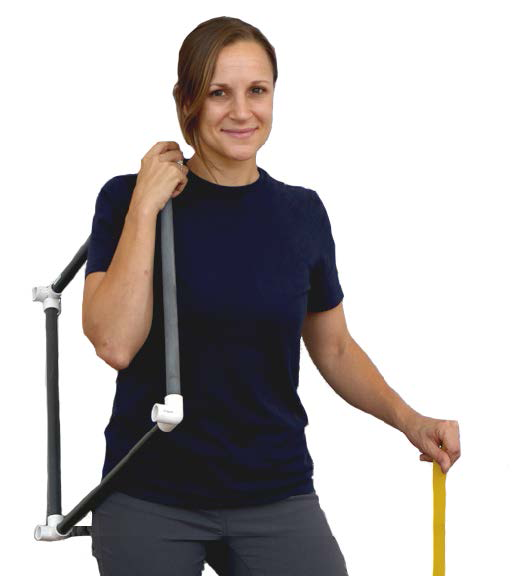
ESSIE Assistant Professor; Instrument: Quadrat used to monitor plants and invertebrates; ruler to measure marsh plant height
What’s next?
We have a lot of work to do to field-test and improve many of our technological advances and field-validate the forecasting models that are being generated through this project. In my lab, we are working hard to develop machine learning algorithms to rapidly identify boat and wildlife traffic patterns along the Intracoastal Waterway and are building partnerships with a network of stakeholders across Florida.
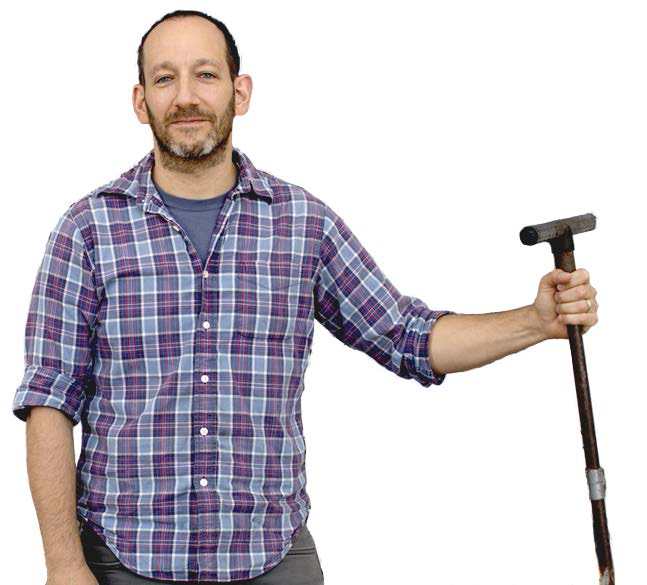
ESSIE Associate Professor; Instrument: Soil Auger used for taking soil samples and installing monitoring wells to measure water levels and water quality
David Kaplan, Ph.D.
iCoast Developer
Why is iCoast so important?
I want people to understand that more than any particular project, iCoast is an idea that we can improve the way we monitor and manage our coastlines. By bringing together experts across disciplines to build the next generation of sensing and modeling technologies, we can not only improve our understanding of the drivers of coastal ecosystem degradation, but also help mitigate these threats.
What impact do you hope to have in the long term?
I hope that the technological innovations developed through iCoast help drive the next generation of environmental scientists and engineers to work to conserve our coastal ecosystems for humans and the environment.
What keeps you motivated?
The idea that we can provide information that will lead to the protection of coastal ecosystems for my daughters and future generations.
What’s next?
The next step is deploying prototypes on the coast!
Maitane Olabarrieta, Ph.D.
Forecast System Developer
Why is iCoast so important?
iCoast is a project that integrates novel and unique monitoring and modeling techniques to understand and predict the health of the coastal ecosystem; this is extremely relevant and needed to preserve and improve the ecosystem services provided by coastal zones.
What do you do on your laptop?
We run the forecast system needed to get the forecasts of atmospheric forces, hydrodynamic and wave boundary conditions. Then, we run the hydrodynamic, wave and sediment transport model. Once these are running, we process the results and make them available to the public.
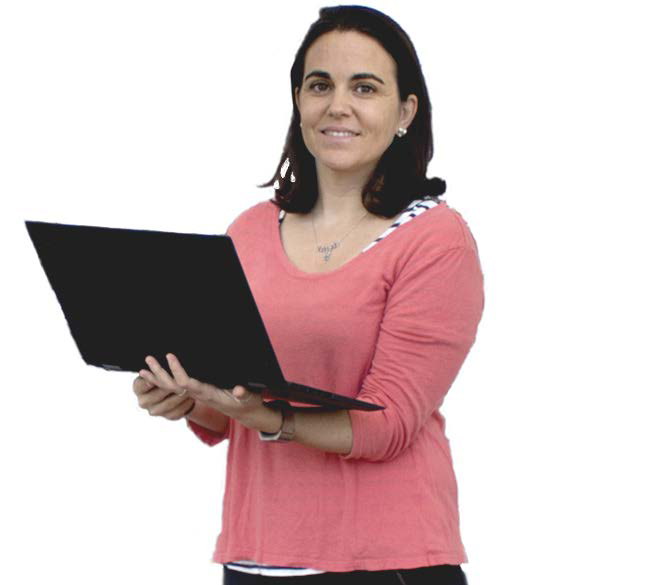
ESSIE Associate Professor; Instrument: Laptop used to make and run the scripts needed to forecast currents, waves and impacts of storms in the Guana Tolomato Matanzas National Estuarine
What impact do you hope to have in the long term?
I think this project will have a great impact in all the scientific communities focused on water quality, landscape change, climate change and coastal resilience in general.
What keeps you motivated?
I think there is an urgent need to develop integrative systems that will help us better understand the behavior of coastal systems from a multidisciplinary point of view.
What’s next?
The idea is to apply what we develop and learn in other coastal systems.
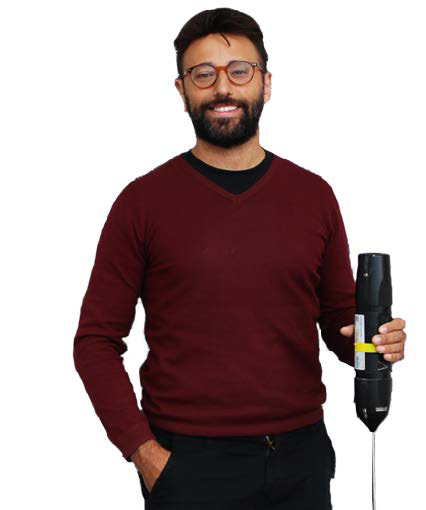
ESSIE Assistant Professor; Instrument: Nortek Vectrino II, an acoustic instrument used to measure fluid velocities
Alberto Canestrelli, Ph.D.
Forecast Model Developer
Why is iCoast so important?
iCoast is important because it is the first project of this kind. It focuses on an interdisciplinary effort among hydrologists, coastal engineers, social scientists, toxicologists and sensor technologists, aiming at understanding and predicting the links and dependencies between the health of humans, animals, plants and the coastal environment.
What impact do you hope to have in the long term?
The United Nations predicts that the global population will be 9.3 billion by 2050. With 23% of the population living within 100 kilometers from the coast, it is important to start now to analyze and improve the health of coastal systems, in order to make them a better place for the life of not only humans, but also animals and plants.
What keeps you motivated?
I am motivated by the possibility of collaborating with a skillful interdisciplinary group. It is an opportunity to make a tangible impact in the environment and in coastal life.
What’s next?
While the initial focus is on the Guana Tolomato Matanzas Estuary near St. Augustine, the goal of this initiative is to develop the world’s first autonomous, integrated, multi-scale, physical-chemical-biological sensing and modeling system and deploy it along the entire Florida coastline.
Arnoldo Valle-Levinson, Ph.D.
Interpretation and Data Collection Analyst
Why is iCoast so important?
There is a compelling need to understand how coastal systems work. That’s where humans have the most direct influence and where humans receive the most direct influence.
What long-term impacts do you hope to have?
I hope I can contribute to the understanding of different processes that affect coastal systems, and how these systems impact humans, and how humans impact coastal processes.
What keeps you motivated?
Findings obtained with every exploration and analysis of data or model simulation output.
What’s next?
I will help interpret and understand information being generated by the project.
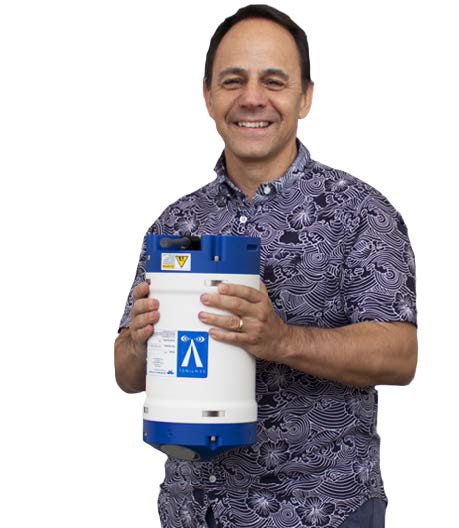
ESSIE Professor; Instrument: Acoustic Doppler current profiler used to measure velocity profiles
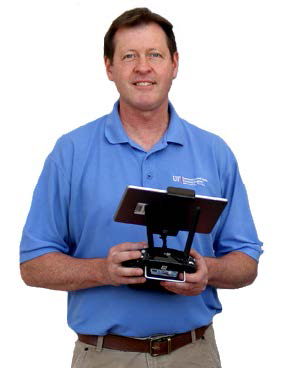
MAE Associate Chair and Professor; Instrument: Drone used to collect water samples to be tested for contaminants
Peter Ifju, Ph.D.
Drone System Developer
Why is iCoast so important?
This project consists of an interdisciplinary team that covers many aspects of water collection, testing modeling, and prediction of contamination of natural and urban waterways.
What impact do you hope to have in the long term?
The team would like to develop the ability to rapidly measure and forecast future red tide, algal blooms and other contaminants that decrease the appeal and safety of the Florida coastal region.
What keeps you motivated?
The challenge of designing, building and fielding a complex autonomous system for collecting water in an efficient manner. This can increase the speed of collection since no boat is required.
What’s next?
Continued work on the system and doing field tests. The new work will be collecting samples to support the rest of the team’s efforts. This technology will then for the backbone of future funding and research.
Z. Hugh Fan, Ph.D.
Miniaturization Specialist Developing a Platform for Detecting Pathogens Along the Intracoastal Waterway
Why is iCoast so important?
iCoast is about monitoring water quality along the coastline, which is important because harmful algal blooms and waterborne pathogens decimate coastal fisheries, impact human health, and affect Florida tourism.
What impact do you hope to have in the long term?
The iCoast project aims to monitor nutrients loads, survey water temperature, and detect water-borne pathogens in the coastal zone. In the long term, we hope to predict when and where algal bloom and pathogen outbreaks will occur, their fate, and overall impact on the health of humans and coastal ecosystems.
What keeps you motivated?
Mentoring students, meeting challenges and having an impact.
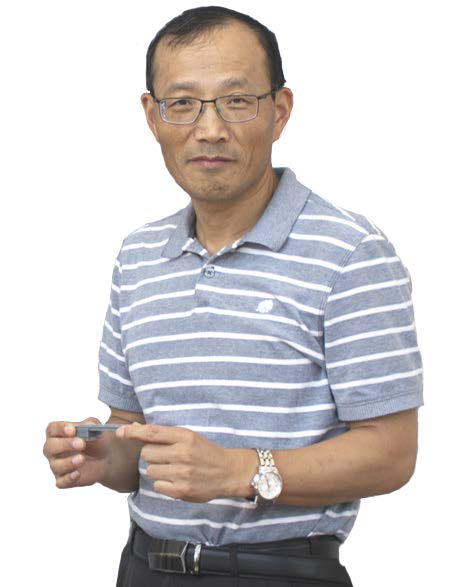
MAE Professor; Instrument: hand-held device for processing a sample, extracting and enriching nucleic acids and detecting pathogens.
What’s next?
We are working on a method to process large amount of water samples to interface with our handheld device and on the simultaneous detection of multiple pathogens in water samples.